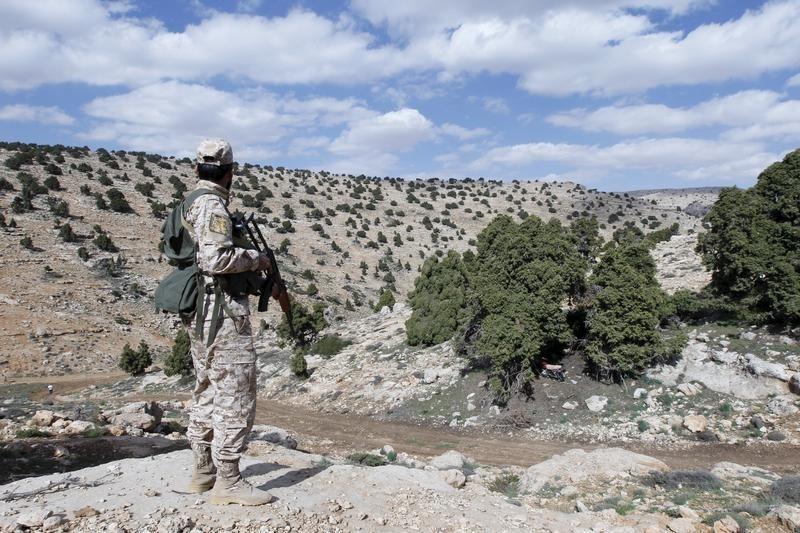Baghdad- Iraqi forces were still divided on Tuesday regarding a deal reached between Lebanon’s Hezbollah and ISIS to transfer militants from east Lebanon and Qalamoun to Syria’s Deir Ezzor near the Iraqi border while Tehran called for the creation of an axis that includes Baghdad, Damascus and Beirut.
Hadi al-Amiri, the secretary general of the Badr Organization, -which is an influential military wing within the multi-partied Hashd al-Shaabi paramilitary units (PMUs)- told Rudaw website that the transfer of ISIS militants to Boukamel is “not a good step and an improper behavior towards Iraq.”
Amiri claimed, although they were against it, that Hashd did not interfere with the deal recently brokered between Hezbollah and the Syrian army to move ISIS militants from the Lebanese-Syrian border to the Syrian-Iraqi border.
“Though we criticized it, this question is related to Syria. We do not interfere,” he said.
Other voices in Iraq emerged this week supporting the deal. Islamic Supreme Council of Iraq (ISCI) leader Sheikh Jalal al-Din al-Saghir voiced their support to the deal.
The comments coincide with an Iranian move linked to the issue when Secretary of Iran’s Expediency Council Mohsen Rezaei announced last Sunday establishing an “axis” between Iraq, Iran, Syria and Lebanon.
“The four countries are confronting terrorism. If some problems emerge between them, they will be amicably solved,” he said in reference to the criticisms launched against the Hezbollah-ISIS deal.
Rezaei had visited Iraq last month. Sources quoted him as saying: “Today, an axis has been established between Iraq, Iran, Syria and Lebanon.”
Observes said that such a statement expresses the Iranian government’s “worries and disturbance” from the “attacks” that touched Hezbollah and the party’s leader Hassan Nasrallah following Qalamoun’s ISIS deal.
Iraqi ministerial sources told Asharq Al-Awsat that the issue of the new “axis” announced by Rezaei was presented to Iraqi Prime Minister Haider Al-Abadi who did not yet take a decision on the issue.
